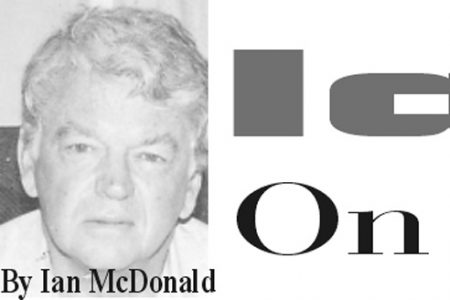The habit of finding things to do
My younger friends – and at my advanced age virtually everyone is younger – particularly Generation Xers (born 1965-79) and the millennials (born 1980-2000) – complain about being over-scheduled and over-committed.
My younger friends – and at my advanced age virtually everyone is younger – particularly Generation Xers (born 1965-79) and the millennials (born 1980-2000) – complain about being over-scheduled and over-committed.
A very great asset is the ability to write well. Just as the gift of speech first separated man from animal, so has the ability to set speech down in written form gradually raised man up from his first beginnings as brute to the high level of science, art, and social organisation which he now precariously occupies.
It would cost US$700 million a year to immunise 250 million children in poor countries against polio, measles, whooping cough, diphtheria, tetanus and tuberculosis.
The debate about what constitutes happiness has been going on for thousands of years.
In the old Soviet Russia one of the more outrageous features of life was that their greatest creative writers for years were barred from publishing in their own native land.

In Guyana getting a good education is thought of as getting good exam results.
My father died twenty-three years ago at the age of 89.
Samuel Johnson, that great man of letters and heavyweight of good sense in eighteenth century England, commonly said the people whom we should most beware in the world are those who constantly insist on finding fault, those whose clouds are never lit by silver linings, those who everlastingly “refuse to be pleased.”

A recent article in The Economist calls attention to the retreat of democracy in the world.

I find it hard to understand why most people never, literally never, read poetry.

At the ripe old age of eighty-five, when one is very aware that it is time to make sense of what has happened in one’s life, I have become convinced about two major things.

In my sorting out of old files and paper in my chaotic personal archive, I have been unearthing essays I wrote a long time ago.

Having retired years ago after 52 years in the sugar industry, including working closely with governments and regional institutions along the way, if there is one thing I have learned it is the extreme frailty of all grand plans.

In 1991 and 1992, when I was working with the West Indian Commission, a feature of many of the presentations made by scores of experts and academics and businessmen and educators was how often they cited other countries as influences we needed to recall or examples we should strive to emulate.

I have said before, and will keep on saying until my strength gives out, that there is nothing more important in society than teaching the growing generations to express themselves in good, clear, concise, forceful English.

The title I gave to my fourth collection of poems is Between Silence and Silence.

Good poetry holds its truth and relevance throughout the ages. It may retail the facts and thinking of its own era, but part of it will always express what is eternally true and recognizable.

The world is terror-stricken. A condition of advanced paranoia is spreading everywhere.

At thirteen, I think it was, I was reading love poetry.

My tutor at Cambridge, Professor Nick Hammond, authority on the history of ancient Macedonia and on the life of Alexander the Great, used to coach me on what he called “exercises of the mind.”
The ePaper edition, on the Web & in stores for Android, iPhone & iPad.
Included free with your web subscription. Learn more.